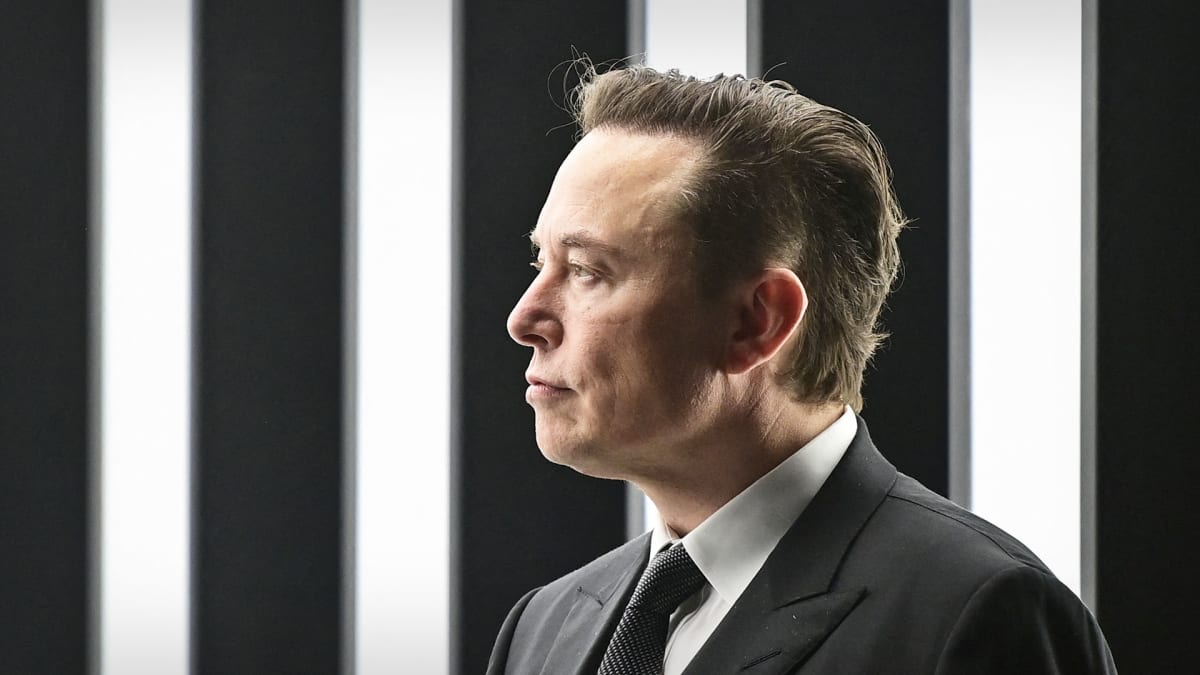
Elon Musk sees himself as the CEO of everything.
As his influence has grown alongside the number of his Twitter followers, the Tesla (TSLA) boss and SpaceX founder has been making his voice heard on global issues.
He doesn't limit his areas of interest, and his blunt approach draws acclaim from his followers. He has established himself as a kind of global CEO.
And China has just given him a new opportunity to put on his visionary's hat.
China, the world's most populous country -- one-sixth of the planet's inhabitants live there -- saw its population decline in 2022. That's a statistic that was unheard of for six decades, and demographers say that it's a historic turning point.
The country's population had doubled since the 1960s, to more than 1.4 billion today.
But in 2022, the number of births in China was 9.56 million, the National Bureau of Statistics reported. At the same time, 10.41 million deaths were recorded. The drop in the population was thus 850,000 people.
Musk Calls Population Decline a 'Massive Danger'
This is a first since 1960-1961, when a famine that began in 1959 killed tens of millions of people. That famine followed the errors of the economic policy known as the Great Leap Forward.
Paradoxically, this current decline occurred even as China relaxed its birth-control policy in recent years. Ten years ago, the Chinese were allowed to have only one child. Since 2021, they can have three.
This drop, which could continue until the end of the century, could severely harm the economy and the pension system.
For Musk, the Chinese announcements reinforce his warning that the biggest problem facing the world is population decline.
"Population collapse is a massive danger to the future of civilization!" the billionaire commented on Jan. 16.
He then highlighted a message from the 2018 World Economic Forum to hammer out his warning and, above all, to indicate that he was right. In its message the forum warned against overcrowding, but Musk has been estimating for years that the world doesn't have enough people.
"Even as birth rates decline overpopulation remains a global challenge," the World Economic Forum tweeted on April 5, 2018.
"Population collapse is an existential problem for humanity, not overpopulation!" Musk tweeted back on Jan. 17, 2023.
The United Nations has estimated that India should dethrone China this year as the country with the most inhabitants.
In 2019, the UN still believed that China would not reach its peak population until 2031-2032. But since then the fertility rate has collapsed to 1.15 children per woman in 2021, a bit more than half the generation-renewal threshold of 2.1.
Many local Chinese authorities have launched measures to encourage couples to procreate.
The metropolis of Shenzhen in south China recently began offering a birth bonus and allowances paid until the children are three years old. A couple welcoming their first baby will automatically receive 3,000 yuan ($443); they'll get 10,000 yuan ($1,476) if it is their third. In total, a family with three children will receive 37,500 yuan ($5,536) in bonuses and allowances.
But whether such incentives can reverse the curve is uncertain. China's population could decline by an average of 1.1% each year, according to a study by the Shanghai Academy of Social Sciences. The country could have only 587 million inhabitants in 2100, less than half of the population today, according to the most pessimistic projections of these demographers.
Although he is not a demographer, Musk said several months ago that the Chinese population was going to collapse.
"Most people still think China has a one-child policy. China had its lowest birthdate ever last year, despite having a three-child policy!" Musk wrote last June. "At current birth rates, China will lose ~40% of people every generation! Population collapse."
Besides China, the tech tycoon warns of population decline in wealthy countries like Japan.
The remedy, he says, is to encourage people to have children. The billionaire, 51, is the father of nine, three of whom were born at the end of 2021.







